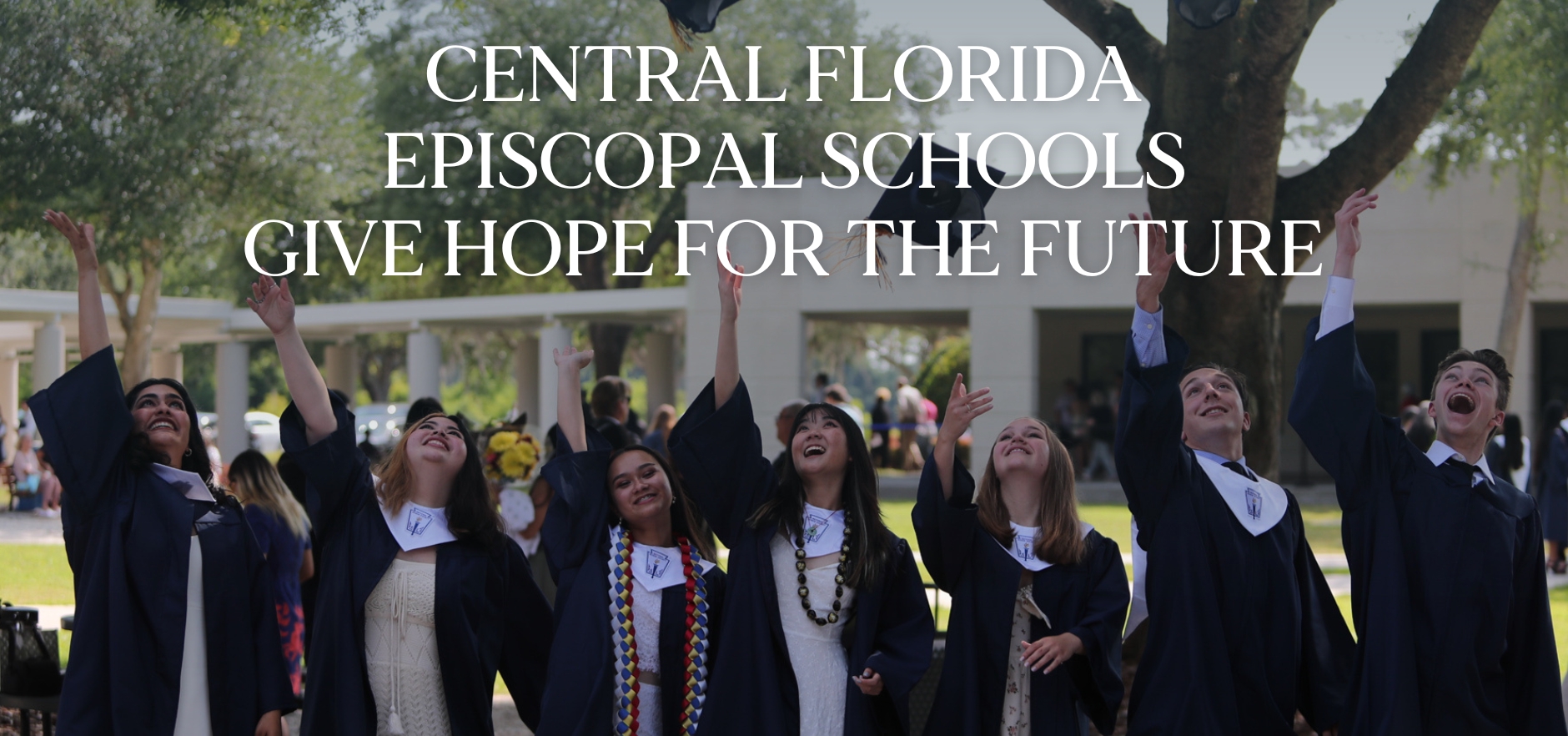Parents have become increasingly dissatisfied with K-12 education. A recent Gallup study has shown a steady decrease in satisfaction levels. Since reaching a high of 51% in 2019, satisfaction has dropped to 42%, the lowest level in two decades. However, Episcopal schools continue to help students thrive intellectually, physically and spiritually, preparing them for the future and serving as a vital community outreach.
The Gallup study, conducted in August 2022, shows that the greatest source of dissatisfaction with K-12 education is related to the rigor of the curriculum and teaching methods. Respondents identify poor or outdated curriculum, lack of teaching basics (reading, writing, arithmetic) and not learning life skills as their biggest concerns.
The Rev. Russell Wohlever, president of the Central Florida Episcopal Schools Association and chaplain at Trinity Preparatory School in Winter Park, said Episcopal schools strive to develop the full child to better prepare them for the future. Sixteen schools make up the CFESA, which includes preschools, K-8 parish day schools, K-12 and 6-12 preparatory schools.
“Trinity Preparatory School’s core values of excellence, faith, character development and family ensure that students are immersed in a caring and supportive environment that offers the top educational programs in Central Florida,” per the school’s website.
Parents and students alike notice the difference. “[I received a] very good education that put me years ahead of others when I went to college,” said former Trinity Prep student Jack DeSimone.
The school “provides excellent academics while inspiring students to become leaders, collaborate, think critically and follow their curiosities,” said Robyn Raffa, mother of two Trinity Prep graduates and one current student.
Aside from academic strength, Episcopal schools are “places where the ethos is seeking to serve Christ in all people, loving others, striving for justice and peace among all and respecting the dignity of every human being,” Wohlever said.
Every Episcopal school includes a weekly chapel, where students “hear the teachings of Jesus, especially in serving others,” he added, noting that “Parents have often shared that their children come home excited about what they learned in chapel. It is especially exciting when students who are not of the Christian faith share their enjoyment of attending chapel.”
While the diocesan schools provide a safe place where students can grow spiritually, they are open to children of all faiths. “The schools are one of the biggest, if not the biggest, outreach ministries in the diocese,” Wohlever said. “They directly impact the lives of over 3,000 people each year.”
While many parents are looking for better solutions for their children’s education, Episcopal schools throughout the diocese are finding ways to build a brighter future, not only through great academics but also by developing the whole child: mind, body and spirit. This approach to education is putting these young people far ahead of their peers as they move forward and impact the world around them. The inspiring work of these schools gives us a solid foundation for entering a future with hope.

